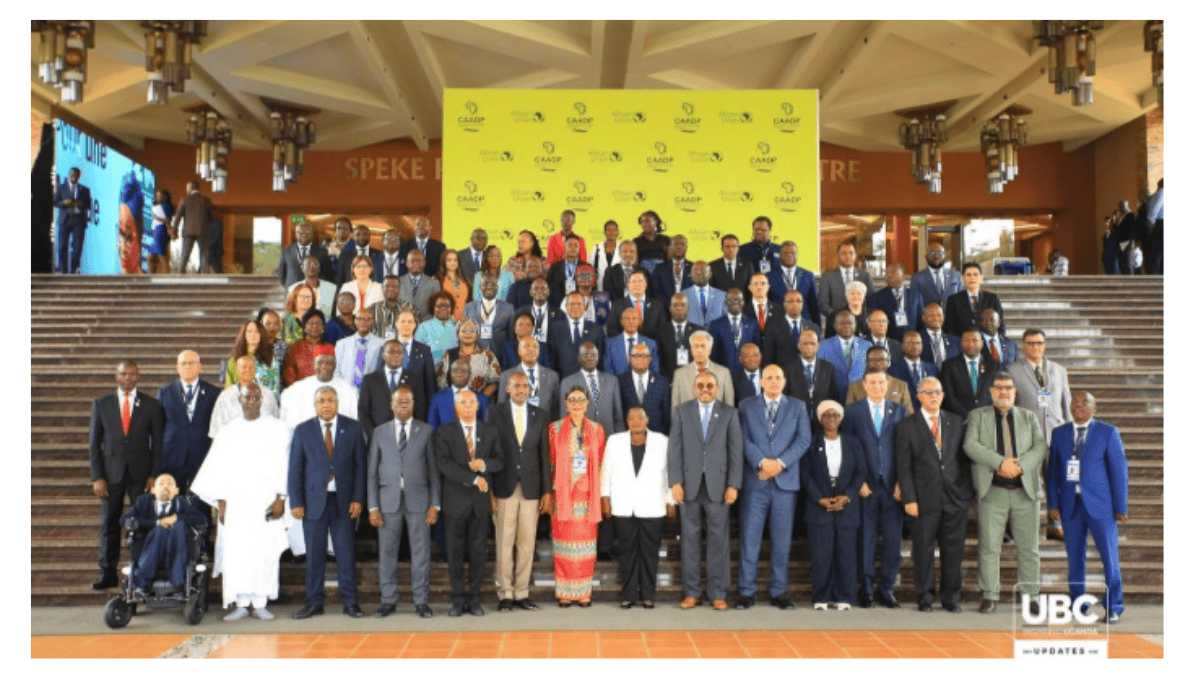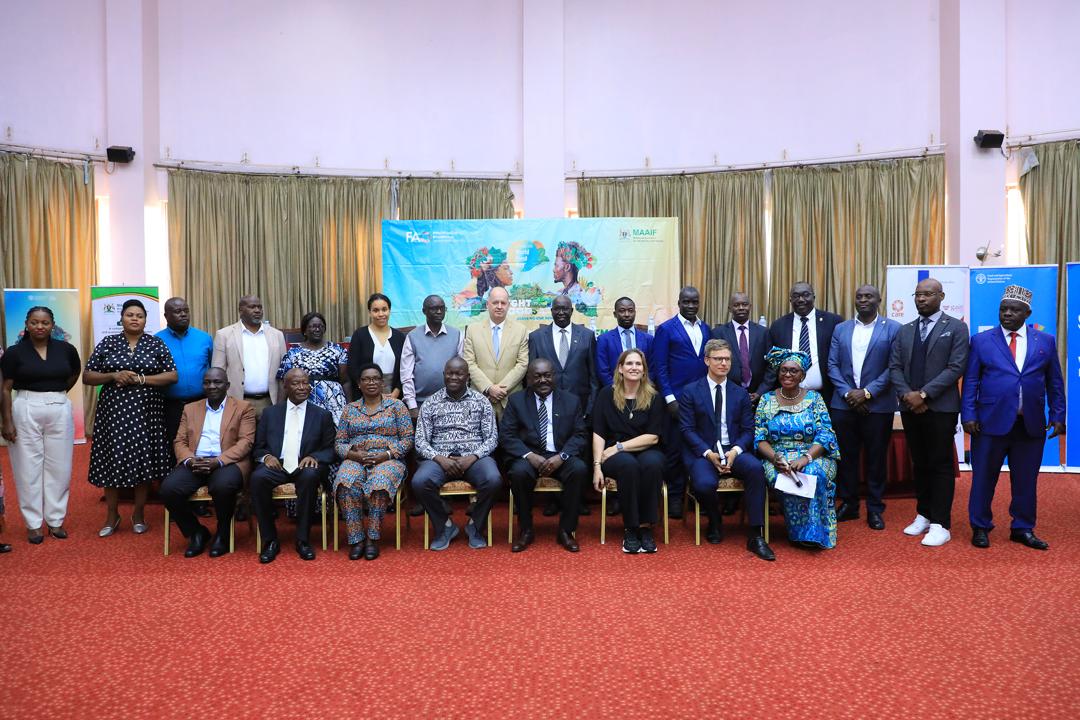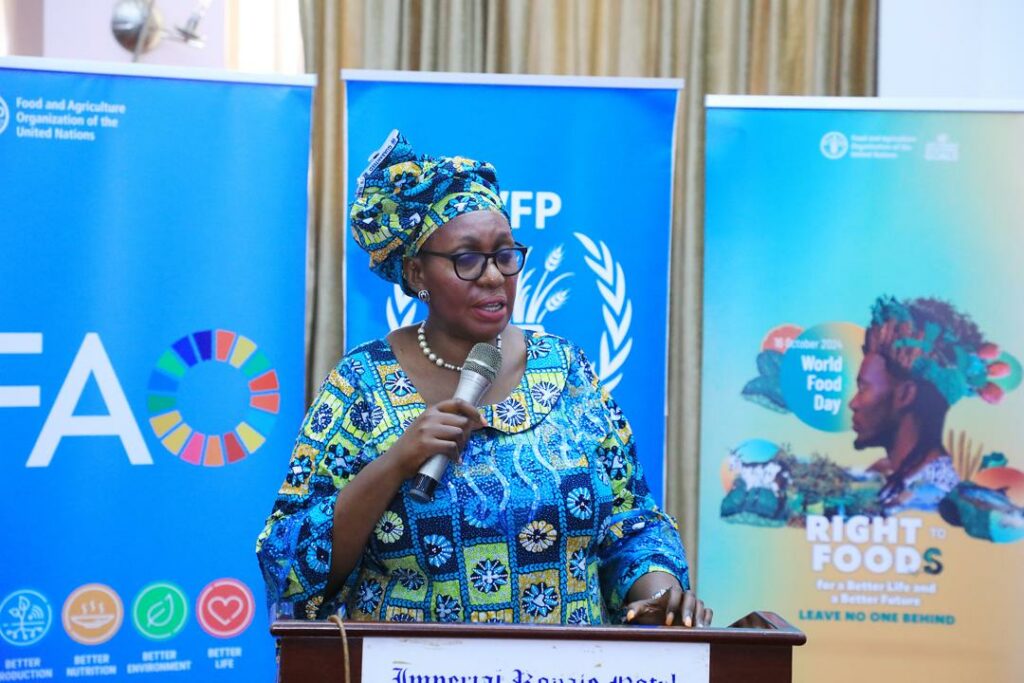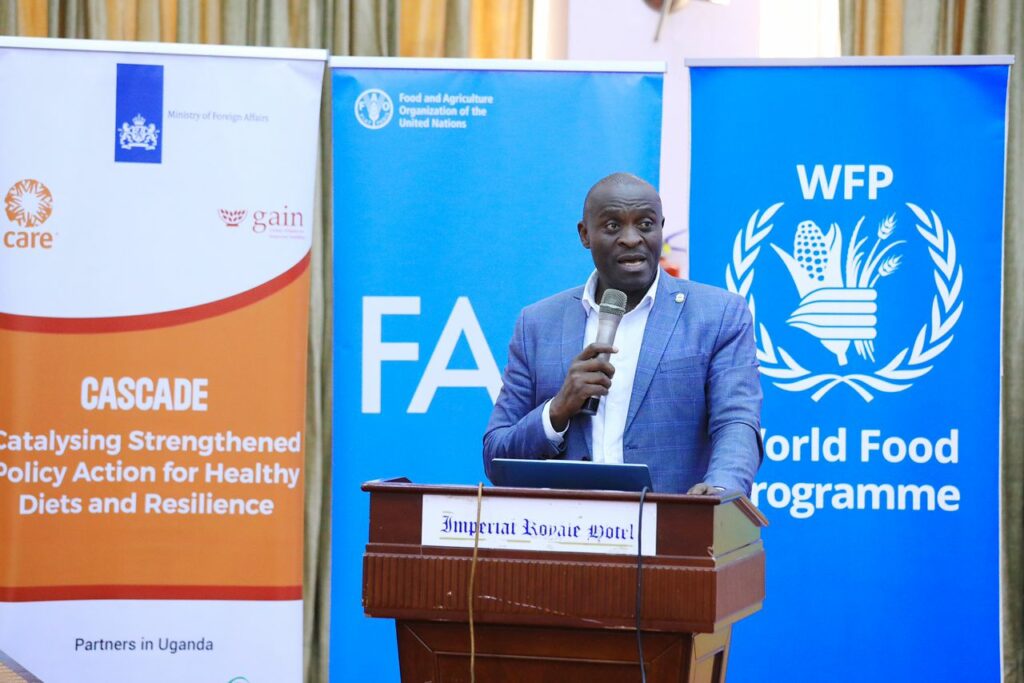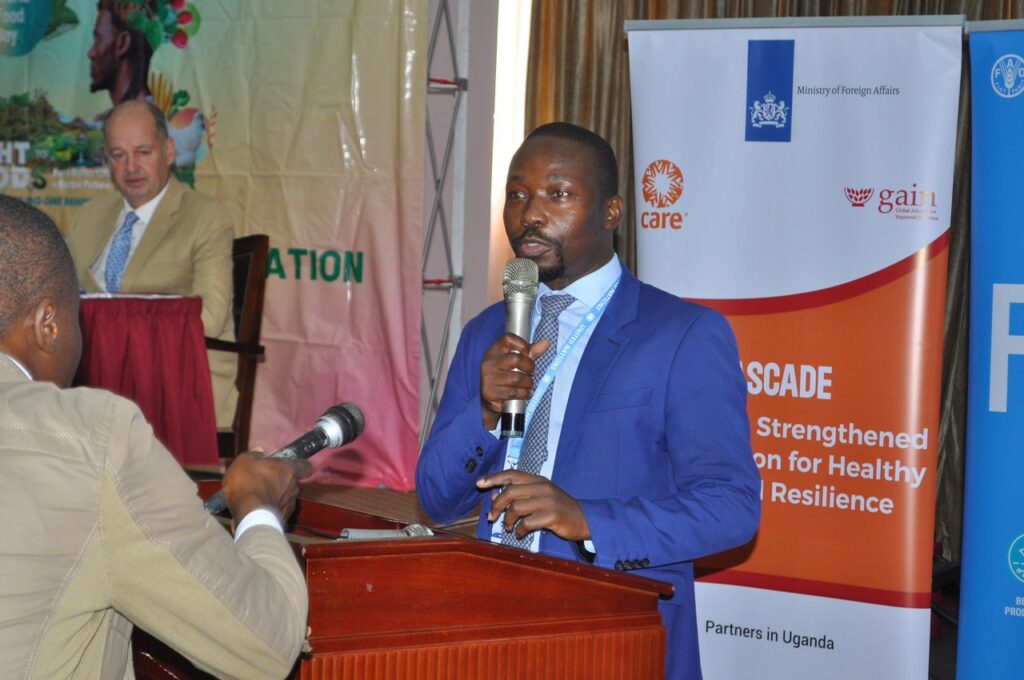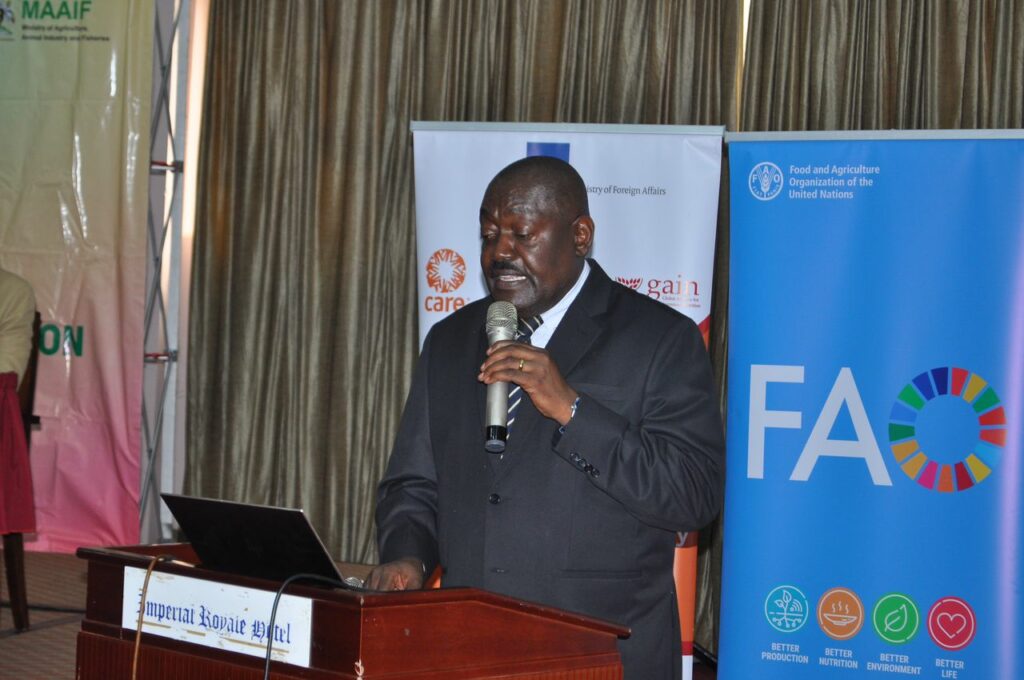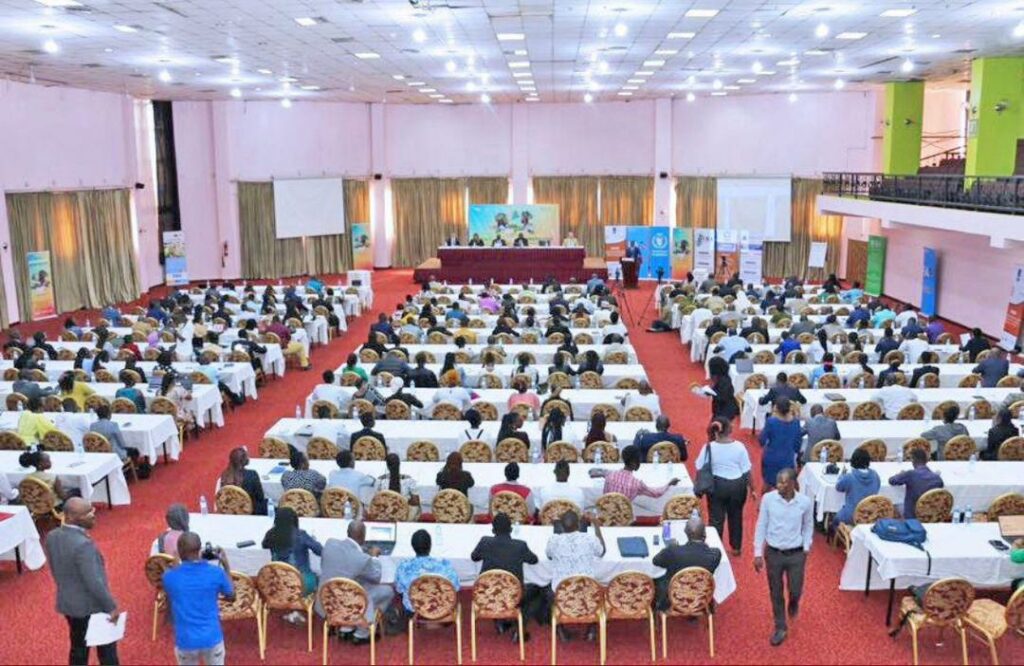By Claire Atukunda
The African Agrifood System has long faced deep-rooted systemic barriers stemming from capacity, collaboration, coordination, and accountability challenges. These have implicated all food system actors, especially the bottom-of-the-pyramid consumers in African communities.
The Extra-ordinary CAADP Kampala Summit held from 9th– 11th January 2024 at Speke Resort Hotel, Munyonyo in Kampala was filled with hope and optimism as African Union Heads of State and Government endorsed the Kampala Declaration and the new CAADP strategy 2026/35. However, several questions arose during the discussions; (i) What impact could the new CAADP declaration cause when the continent has failed to achieve all the commitments made in the Maputo and Malabo declarations? and (ii) What needs to be done differently to change the current state of play of CAADP implementation.
In his discussion during the Summit side event on pivotal system strengthening pathways towards resilient agrifood systems in Africa by the CASCADE program, Mr. Boaz Keizire, Head of Policy at AGRA highlighted that effective governance was fundamental to creating a real impact in Africa’s Agrifood system. He noted that significant impact in the implementation of CAADP declarations could only be realized if food systems transformation was highly prioritized by governments, policy implementation was informed by evidence not politics, and agrifood system investments were made in line with the commitments made. Presenting evidence from Rwanda and Ethiopia, Mr. Keizire noted that countries which had demonstrated political commitment and driven the right policies and investments during the Malabo Agenda had unlocked the potential of their private sector and smallholder farmers, driving progress in agrifood system and overall country economic growth.
Read Also: The Kampala CAADP Summit: A New Era For Women’s Leadership in Agriculture
Building from this discussion, Ms. Agnes Kirabo, the Executive Director of the Food Rights Alliance emphasized that the CAADP Declaration was only as strong as the collective resolve of stakeholders to implement it. She called for the integration of CAADP in National and local government development planning and budgeting frameworks, the establishment of rigorous accountability mechanisms, and frameworks for tracking and aligning civil society contributions to this development agenda.
Panelists at the CAADP side event discussing the pivotal role of food systems governance and strengthening pathways to build resilient agrifood systems in Africa, using the CASCADE program as a case study.
To catalyze action, David Manyonga, the Senior Technical Advisor on Systems Strengthening at CARE International called for the scaling up of proven system-focused approaches such as the 5 CASCADE policy influencing pathways on Policy change and accountability, Market Re-engineering and Private Sector Mobilization, Community empowerment and Shift in gender Norms, Data and Learning Systematization, and strengthened coordination among all food system actors to ensure realistic holistic food system transformation at all levels.
Overall, the discussions strongly alluded to the fact that while strengthening Agri-Food Systems Governance is the sixth commitment of the Kampala declaration, it is fundamental to the achievement of all other commitments. Hence, prioritization and investment in effective governance mechanisms will be the primary game changer in the realization of the Kampala Declaration and CAADP Strategy 2026- 2035.
